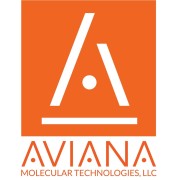NASA Awards Grant to Local Startup to Turn Space-tech to Bio-tech
ORLANDO, Fla., June 6, 2016 /PRNewswire/ — Aviana Molecular Technologies, (Aviana) a development-stage diagnostic startup company, received an STTR grant from NASA to develop sensors to be used on vehicles in extra-terrestrial missions and repurpose them as biosensors. This grant was awarded in conjunction with the University of Central Florida (UCF).
Donald Malocha, Ph.D., UCF professor and Principal Investigator, has spent the last eight years developing wireless sensors used by the NASA shuttle program to interrogate many parameters critical to the proper functioning of the space craft. The recently awarded NASA grant furthers R&D of these wireless sensors composed of surface acoustic wave (SAW) devices (commonly used in cell phones), into a new class of biosensors.
“This new award will continue the innovation already completed and licensed by Aviana from UCF. We plan to expand these sensors into use for monitoring human health,” said Dr. Vanaja V. Ragavan, President and CEO of Aviana.
Aviana’s biosensor platform uses the latest developments in cellular communications, semiconductor electronics, micro-fluidics and manufacturing methods to create a unique point-of-care diagnostic (POC) platform to detect biomarkers or infections.
Because these biosensors are portable, cost-effective and versatile, they can be used in both highly sophisticated health systems and in resource-limited environments which can fill unmet medical needs in the U.S. and around the world, where POC diagnosis can positively impact human health.
“This award allows NASA and UCF to work with Aviana to commercialize crucial work done for the space program into practical sensors to diagnose and preserve human health,” said Malocha, Pegasus Professor of Electrical Engineering at UCF.
About Aviana Molecular Technologies
Aviana Molecular Technologies, is a development-stage diagnostic company working on an innovative, highly sensitive, and user-friendly platform technology, with an initial interest in developing a point-of-care (POC) diagnostic. Aviana’s technology is simple, adaptable, and can be used for a point of care diagnosis for any number of biomarkers or infections. The platform can be used in both highly sophisticated health systems but also in resource-limited environments. Aviana believes that its technology can fill unmet medical needs in the U.S. and around the world, where POC diagnosis can positively impact human health. For more information visit, http://avianamolecular.com.
University of Central Florida
America’s Partnership University: The University of Central Florida, the nation’s second-largest university with more than 63,000 students, has grown in size, quality, diversity and reputation in its first 50 years. Today, the university offers more than 200 degree programs at its main campus in Orlando and more than a dozen other locations. UCF is an economic engine attracting and supporting industries vital to the region’s future while providing students with real-world experiences that help them succeed after graduation. For more information, visit http://today.ucf.edu.






